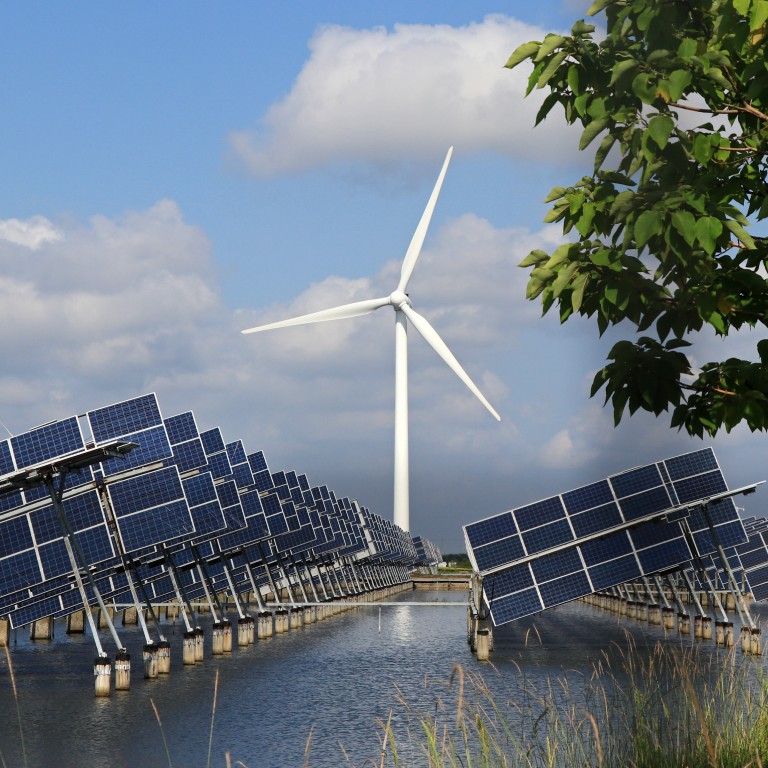
Science fiction is best placed to discuss climate crisis, says Chen Qiufan, Chinese sci-fi author
- Chen Qiufan has consciously included topics such as environmental pollution, biodiversity, loss of indigenous culture in his science fiction writing
- His latest is a children’s book about carbon neutrality. Science fiction ‘can broaden the boundary of people’s understanding of the world’, he says
In Chinese science fiction writer Chen Qiufan’s new book Net Zero China, the protagonist travels through time to the year 2060 and sees a China in which President Xi Jinping’s net-zero pledge is made true. The author, also known as Stanley Chen, tells Karoline Kan “a crisis may be an opportunity in disguise”.
“Our world is full of urgent climate problems, and each one is hard to solve. I tried to seek answers in my science fiction writing, but the more I learn about it, the more difficult I find the questions are, and in the end I think we have to go back to imagination, love, and empathy sometimes.
“We need compassion to realise the urgency of the climate crisis and realise that all of us are victims of climate change. We need to unite and act up to make a change. Those can be the most powerful solutions.
“I have been a science fiction fan since I was a child. I started to watch the Star Wars series and Star Trek in kindergarten. So writing science fiction is a very natural choice for me. Then about 10 years ago, I wrote my first environment-related science fiction, Waste Tide (荒潮), which was a story addressing the problem of electronic waste, climate change and the environment.

“Although science fiction is popular today, at that time, when I wrote Waste Tide, few people in mainland China who have professions related to climate research talked about it. In the media, little attention was paid to climate change.
“People found it odd that I spent time on this literature genre. But in the past 10 years, it has changed so much. China has made various policies, and the most recent one is the pledge to reach carbon neutrality.
Ironically, after all the … technological revolutions, people today forget about some wisdom that our ancestors knew thousands of years ago
“I linked my writing to climate change totally accidentally, but increasingly I realised how important it is. I have been consciously including topics such as environmental pollution, biodiversity, loss of indigenous culture into my writing.
“I think science fiction is the best literature genre to lead discussions on climate change because instead of a human-centred angle, you can regard the whole universe as a collective living community in the stories.
“Science fiction can work as a bridge that connects all aspects, from technology to humanity, from history to the future, and from reality to imagination. It is a medium that can broaden the boundary of people’s understanding of the world. Science fiction also has the freedom to explore all kinds of interesting hypotheses, which is powerful in amplifying messages about the climate crisis.
Award-winning Chinese sci-fi author’s new short story on climate change
“My latest book is a science fiction book about carbon neutrality for the youth. I find such books for children are especially important because teenagers and children today will be the generation that helps to reach China’s carbon neutrality in the forty years to come.
“In the book, I explored how we can do the little things in our life to reach carbon neutrality. The protagonist lives today but can travel through time. He travels to 2060 and witnesses how society works with the help of all kinds of technological breakthroughs and a smooth system that helps the country reach net zero. At the end, he travels back with the new ideas he learned in 2060 and shares them with people who help reach the climate goal.
“In the process, of course, there are various conflicts between people with good climate will and the groups who want to set barriers, such as powerful fossil fuel corporates. Like in reality, there are conflicts with interest groups and a clash of values.

“The Covid-19 pandemic is an alert to people. I hope people can learn from the pandemic that humans should respect nature, which is also ancient wisdom from traditional Chinese culture. Ironically, after all the so-called modern education and all technological revolutions, people today forget about some wisdom that our ancestors knew thousands of years ago.”

